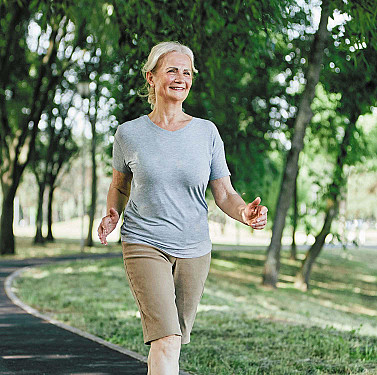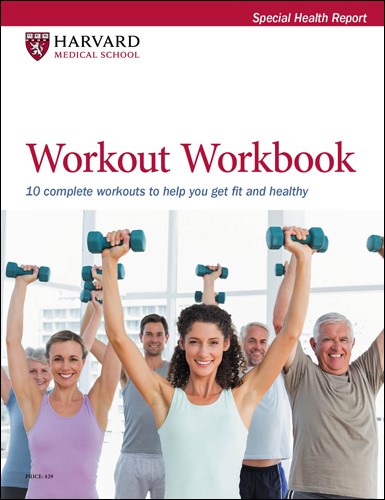Short bursts of exercise may offer big health benefits
In the journals
- Reviewed by Howard E. LeWine, MD, Chief Medical Editor, Harvard Health Publishing; Editorial Advisory Board Member, Harvard Health Publishing

Got two minutes to exercise? Then you have enough time to lower your risk of heart disease, cancer, and even early death, according to a study published online Oct. 27, 2022, by the European Heart Journal.
Researchers looked at almost 72,000 adults, average age 62, who were free of cardiovascular disease or cancer. Participants wore a wrist activity tracker for a week. The device measured their overall activity, vigorous activity, and frequency of vigorous activity lasting at least two minutes. (Vigorous activity usually means activity during which you can't talk in a full sentence.)
At the seven-year follow-up, investigators calculated that exercising vigorously for a total of 15 minutes a week was associated with an 18% lower risk of dying during the study period. Doing at least 19 minutes per week was linked to a 40% lower risk of developing heart disease in that time, and doing 16 minutes weekly was associated with a 16% drop in cancer risk. The risk for all three categories dropped even more as the weekly amount increased.
But how people did their vigorous activity also stood out. The findings showed that accumulating several short bouts (about two minutes each) of vigorous activity at different times throughout the day might be especially beneficial.
The message here is to engage in vigorous activities when possible. For example, pick times to dial up the intensity for a few minutes, like during your daily walk or while doing yard work.
Image: © Flashpop/Getty Images
About the Author

Matthew Solan, Former Executive Editor, Harvard Men's Health Watch
About the Reviewer

Howard E. LeWine, MD, Chief Medical Editor, Harvard Health Publishing; Editorial Advisory Board Member, Harvard Health Publishing
Disclaimer:
As a service to our readers, Harvard Health Publishing provides access to our library of archived content. Please note the date of last review or update on all articles.
No content on this site, regardless of date, should ever be used as a substitute for direct medical advice from your doctor or other qualified clinician.
















